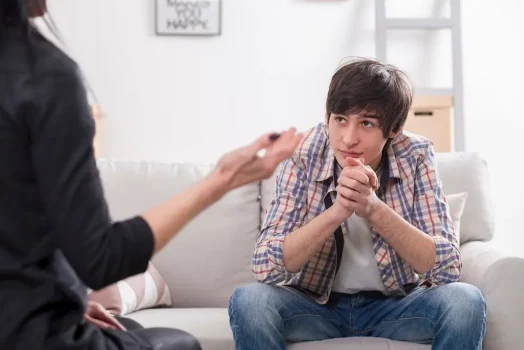Raising children can be terrifying, especially when you start to notice signs of mental health decline. Whether your child is having physical or mental health problems, we at Life Adjustment Team know it can just add to the stress of being a parent.
Even if you are noticing something is off, it can often be hard for parents to recognize the signs and symptoms of mental health problems in their children. This can be especially true with teenage and young adult children.
Teenagers can be moody, and not want to be around their parents, and that parenting book probably warned you, so what do you think when your child is isolating themselves from you?
First, some parents may be in denial about the fact that their child is experiencing any problem at all, and may worry it’s a reflection of their own parenting abilities if they are. Second, even if parents are aware that their child is struggling, they may not know how to best help or support them.
Additionally, some parents may feel like they need to respect their children’s privacy and not pry into their personal lives. However, it’s important for parents to be attuned to their children’s mental health no matter their age, and to seek help if needed.
If parents are able to openly discuss mental health management with their children and provide them with the proper support, it can make a world of difference.
How to Tell if Your Teenager is Struggling
As we know, it’s not always easy to tell when your child is dealing with a mental health disorder. Many disorders have similar symptoms, and some teenagers are better at hiding their symptoms than others. But there are some common signs that your child may be struggling.
If you notice any of these signs, it’s important to talk to your child’s doctor or licensed mental health professional.
1. Significant Changes in Mood or Behavior.
If your child is suddenly acting differently with no obvious explanation, it could be a sign they’re struggling with their mental health. Look for changes in mood, energy level, sleep patterns, and eating habits. Your child may also become more withdrawn, irritable, or aggressive.
2. Difficulty Concentrating or Paying Attention.
If your child is having trouble focusing at school or during other activities, it could be a sign of a mental health disorder or a symptom of stress. Your child may also have a hard time following instructions or completing tasks.
3. Problems with School Performance.
If your child’s grades start to slip or they seem to be having more difficulty at school than usual, it could be a sign of a mental health disorder. Your child may also start to miss school more often or have difficulty making and even keeping friends.
4. Changes in Eating or Sleeping Habits.
If your child’s eating or sleeping habits have changed, it could be a sign of a mental health disorder or related issue. Your child may start to skip meals, lose weight, or have trouble sleeping. They may also start to sleep more or less than usual.
5. Loss of Interest in Activities They Used to Enjoy.
If your child starts to lose interest in activities and hobbies they used to enjoy, it could be a sign of a decline in mental health or increased anxiety. You may also notice that your child starts to withdraw from friends and family, or wants to spend more idle time on their own or in bed.
6. Feelings of Hopelessness or Worthlessness.
If your child starts to feel like there’s no point to anything or that they’re not good enough, it could be a sign of depression or another mental health crisis. In some cases, your child may talk about dying or considering suicide.
7. Unexplained Cuts, Bruises, or Aches and Pains.
If your child starts to complain of physical symptoms that can’t be explained, it could be a sign of a mental health disorder or a symptom of an ongoing condition. It could also be a sign your child has started to self-injure or engage in risky behaviors.
Getting Help
If you notice any of these signs, it’s important to talk to your child’s doctor or mental health professional. They can help you figure out if your child is suffering from a mental disorder and plan the steps that need to be taken to get them the help they need. Untreated mental health problems can lead to a number of serious consequences, such as substance abuse, self-harm, eating disorders, and suicide. The availability of mental health treatment for children and young adults at the time they need it has therefore become increasingly important as our awareness of mental health continues to grow.
There are a number of ways to get mental health treatment, including therapy, medication, and support groups. It is important to find a treatment that is right for you or your child. If you are unsure where to start, you can speak to your doctor or a mental health professional to get started. Consider contacting LAT if you’re in or close to the LA area and your child is over the age of 18!








